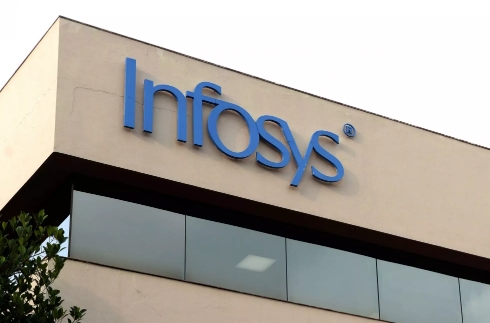Infosys Faces Government Scrutiny Over Termination of 350 Freshers Amid IT Hiring Slowdown
Government Steps In as Infosys Faces Scrutiny Over 350 Freshers’ Termination
The Indian government’s Ministry of Labour and Employment has intervened in the controversy surrounding Infosys after the company terminated 350 freshers who failed their internal assessments. The case was brought to light by the Nascent Information Technology Employees Senate (NITES), a labor union representing IT employees.
The termination of the freshers, who were undergoing training at Infosys’ Mysuru campus, has raised questions about fairness, transparency, and workforce management practices in India’s IT sector. The government has referred the matter to the Karnataka labour commissioner, urging prompt action in addressing the concerns raised by the affected trainees.
The Nature of the Terminations: What Happened?
Infosys’ decision to dismiss the trainees followed their failure to pass internal assessments that tested essential programming skills, including Java and Database Management Systems (DBMS). Trainees were required to score at least 65% on these evaluations, with three attempts to pass. Those who did not meet the minimum threshold after the final attempt were let go.
Infosys Lays Off 400 Trainees in Mysuru Amid Rigorous Assessment Failures
The 350 freshers had been hired as part of Infosys’ graduate trainee program, where employees are typically onboarded after completing a rigorous training process. The termination decision has sparked significant backlash from various quarters, especially as many of the affected individuals were hired in 2022 but had to wait over a year before beginning their formal employment.
Government Intervention and Industry-Wide Scrutiny
The termination of freshers by Infosys has come under heavy scrutiny, with the Labour Ministry calling for a review of the company’s actions. According to an official letter from the Center, a request has been made for immediate intervention to prevent what it describes as unlawful termination as per the report.
This incident has drawn comparisons to a similar move by Wipro, which also recently dismissed trainees who failed internal assessments after onboarding. Wipro’s Chief HR Officer, Saurabh Govil, defended the company’s actions by explaining that they had to ensure the candidates were up-to-date with the latest technological skills, especially since many were hired two years ago but were only onboarded recently.
A Broader Trend: IT Firms and Freshers’ Termination
The termination of freshers by Infosys, following a similar move by Wipro, reflects a broader trend in India’s IT sector. In the wake of global economic uncertainty and slower deal pipelines, several companies have been tightening their hiring practices. Tata Consultancy Services (TCS), Wipro, and HCL Technologies are among the other major players that have reduced or delayed their fresher recruitment programs in recent months.
This trend has fueled a wider debate about the impact of hiring slowdowns on freshers who had been hired earlier but faced delayed onboarding. Many of these freshers, who had been offered jobs back in 2022, found themselves waiting for over a year before they could start their employment. Now, they face even greater uncertainty as they are subjected to stringent assessments and, in some cases, forced to leave the company despite meeting the original qualifications.
The Broader Impact on Employee Rights and Transparency
The controversy surrounding Infosys’ decision highlights an ongoing issue in India’s IT industry—employee rights and transparency in hiring and firing practices. Labor unions, including NITES, have called for greater regulation and oversight, urging the government to implement stronger safeguards to protect freshers from unfair terminations.
NITES has also demanded that the government require IT firms to offer clearer explanations for employee dismissals and make the assessment criteria more transparent. “The lack of clear communication from these companies about the reasons for terminations and the standards being enforced only adds to the confusion and anxiety among employees,” said a spokesperson for NITES.
The government’s intervention and the investigation by the Karnataka Labour Commissioner will likely set a precedent for how similar cases will be handled in the future. Industry experts are watching closely to see whether this case will lead to changes in the way IT companies manage freshers’ hiring and training programs.
Infosys’ Response and Future Outlook
Infosys has yet to issue a formal statement responding to the government’s intervention or the wider public backlash. However, the company has previously defended its training programs as rigorous and necessary for ensuring that new hires meet the company’s technical standards.
Despite the ongoing controversy, the situation at Infosys also sheds light on the challenges faced by the broader Indian IT sector in an era of global hiring slowdowns. As automation and artificial intelligence reshape the industry, IT firms are grappling with the challenge of balancing employee expectations with the evolving needs of the business.
Conclusion: A Call for Fairer Practices in IT Hiring
As Infosys faces government scrutiny over the termination of 350 freshers, the case underscores broader concerns about hiring practices in India’s IT industry. With the government stepping in to review the case, freshers and IT unions are hoping for a resolution that will ensure greater fairness and transparency in recruitment and termination decisions.
This incident is likely to influence how IT firms handle fresher hiring in the future, encouraging companies to adopt clearer and more consistent policies to avoid similar controversies. For now, the industry and employees alike await the outcome of the Karnataka Labour Commission’s investigation.

